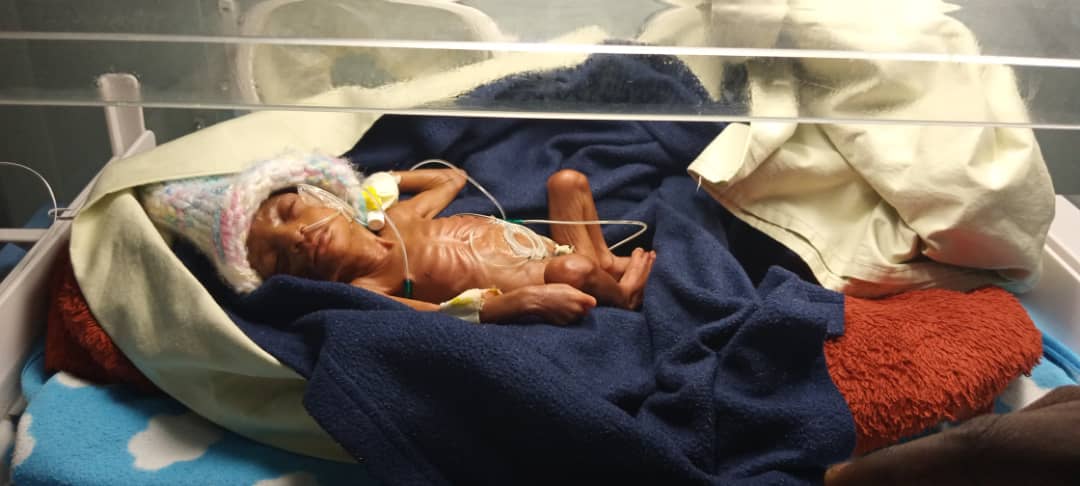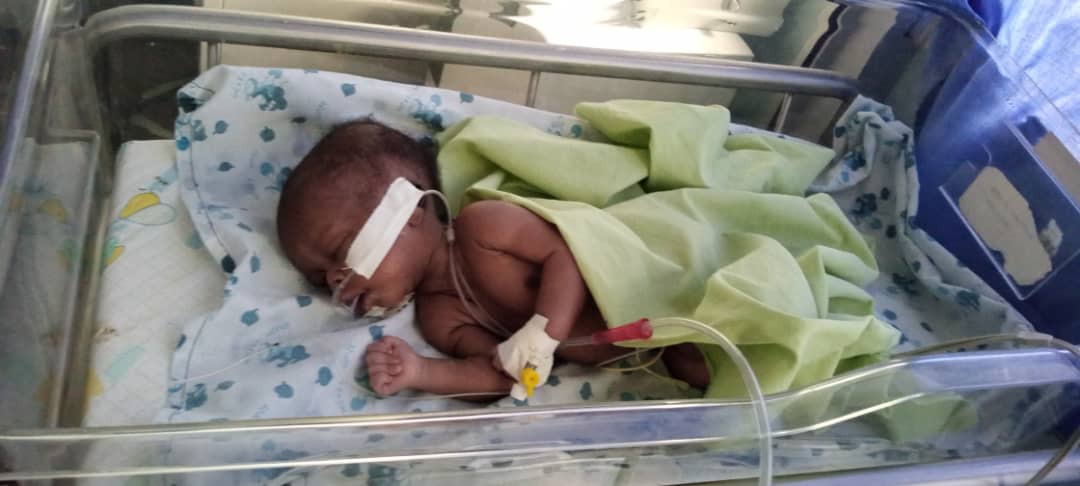LACK OF A STABLE SOURCE OF POWER IS AFFECTING NEONATAL DEPARTMENT AT MOYO GENERAL HOSPITAL.
Moyo General Hospital lack a stable source of power for its operations hence affecting service delivery by the department particularly the Neonatal intensive care units contributing to loss of life of the babies.
Most of the babies in the unit are pre-matures who need constant power supply for their survival.
The hospital was built during the late 1960s and was commissioned by Idi Amin in 1972. But the issue of power has remained a great challenge affecting the hospital especial neonatal department. As the unit only depend on the national grid which is unreliable and unstable across the entire district, it has exposed the babies to life threatening challenges.

Photo of pre-maturer
Christopher Wasuwa the in-charge of neonatal intensive care unit at Moyo General Hospital said although the unit was established in 2020 following the raising cases of babies being produce pre-maturely, it has continue to face challenges of power outages.
He noted that in 2020-2021, 556 pre-matures cases were registered in the unit 17 died due to shortage of power while in 2021-2022 786 babies were admitted on average the unit receives 60 babies in a month.
Mr. Christopher says in addition to power challenges, the units grappling with the issues of inadequate space and equipment’s to accommodate increasing number of the babies among others.
Cue: Christopher Wasuwa the in-charge of the unit on challenges facing the department.mp3
He has appeal for support in order to improve new born survival. Neonatal mortality is a major public health problem and accounts for about one third of the deaths of children under-5 years. Newborns face the highest risk of dying during the neonatal period. Globally 2.4 million children died in the first month of life in 2020.
There are approximately 6700 newborn deaths every day amounting to 47% of all child deaths under the age of 5 years up from 40% in 1990.
According to world health organization (WHO), a child born in sub-Saharan Africa is 10 times more likely to die in the first month than a child born in a high-income country. Uganda and Moyo district is not exceptional to the WHO findings, but however although the neonatal department at Moyo general hospital was established without equipment, the administration of the hospital has improvise to reduce the neonatal mortality rate in the district.
In the recent visit to the hospital, Mr. Davis Kelly project, officer pipeline worldwide an international donor that provides health care service to the people of east Africa said neonatal department has remained top agenda on their list due to inconsistent power supply to the unit.
“There are machines like incubators which needs constant power supply for the survival of the babies, we understand the challenges here, and we will try our best to reverse the situation,” Mr. Kelly adds.
Cue: Mr. Kelly Davis Project officer pipeline worldwide.mp3
Mr. Bernard Bessie the senior hospital administrator of Moyo general however acknowledged the challenge of power at the hospital.
But He said a lot has been done since from the start of the unit especial the installation of solar powered energy to address the issue of power outages at the department.
“It’s not only neonatal department that has power challenges in this hospital, other departments are also experiencing blackouts. The hospital has a stand by generator but the cost of running the generator is high,” Bessie said.

Photo of pre-mature
Jamal Abul Nasar a member of board of governor Moyo general hospital commented the partners for support saying if it was because of their efforts, the situation would have been difficult to handle.
“Moyo district is a hard to reach area where health service delivery is still a great challenge, this needs a mult-sectoral approach to improve service delivery,” said Mr. Jamal.
According to the world health organization, Sub-Saharan Africa has the highest neonatal mortality rate in the world with 27 deaths per 1000 live births, followed by central and southern Asia 23 deaths per 1000 live births due to environmental, socio-economic factors. Children who die within the first 28 days of birth suffer from conditions and diseases associated with lack of quality care at or immediately after birth and in the first days of life.
STORY BY: INYAKUNI Kennedy - Dailywestnile.info